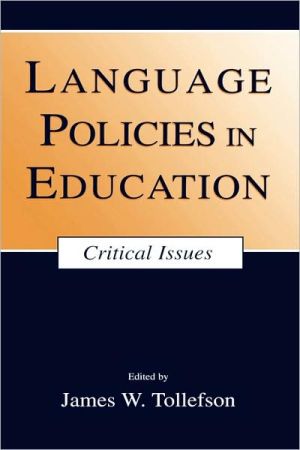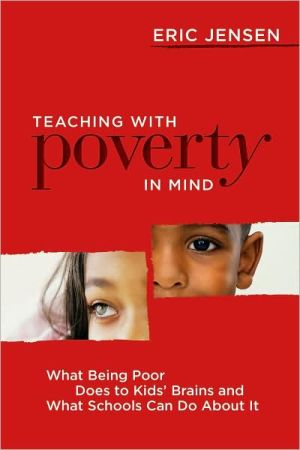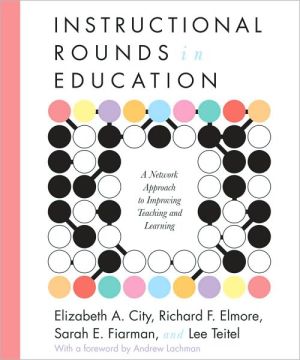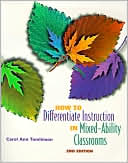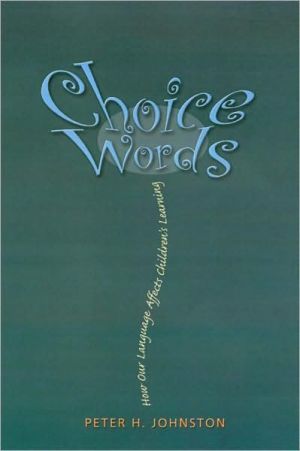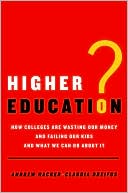Language Policies in Education PR
How do language policies in education serve the interests of dominant groups within societies? How do policies marginalize some students while granting privilege to others? How do language policies in schools create inequalities among learners? How can schools further the educational, social, and economic interests of linguistic minorities?\ These questions—the focus of the chapters in this book— are at the heart of fundamental debates about the role of schools in society; the links between...
Search in google:
How do language policies in education serve the interests of dominant groups within societies? How do policies marginalize some students while granting privilege to others? How do language policies in schools create inequalities among learners? How can schools further the educational, social, and economic interests of linguistic minorities?These questions--the focus of the chapters in this book-- are at the heart of fundamental debates about the role of schools in society; the links between language policies and inequalities of class, region, and ethnicity/nationality; and conflicts between linguistic minorities and "mainstream" populations. The connections between language policies and inequality are examined, as well as successful efforts to use language policies in education to assert the social and linguistic rights of language minorities.*All of the chapters are original and substantial contributions to the study of language policy and exemplify major theories and research methods in the field. *The case studies are international in scope, including cutting-edge analyses of important language policy debates in North America, Australia, Eastern Europe, Africa, East Asia, South Asia, and the Pacific. *The multiple meanings of critical language policy study are highlighted. First, the term refers to the field of critical linguistics. Second, the book seeks to develop readers' ability to critically "read" language policies--that is, to understand the social and political implications of particular policies adopted in specific historical contexts. Third, it features chapters that are critical of traditional analyses that fail to capture the full social and political context of language policies and too often accept uncritically the claims of policy. *Sections are included on theoretical issues in language policies; the use of language policy for governance; the role of language policy in managing ethnic conflict; the link between language and globalization; and the impact of critical pedagogy on social change. This volume is intended for scholars and other specialists in language policy, education, applied linguistics, critical linguistics, and language teaching. It is designed for use as a textbook in graduate and advanced undergraduate courses on language policy and language education. Booknews Sixteen international specialists explore issues of language policies in educational systems in North America, Australia, Eastern Europe, Africa, East Asia, South Asia and the Pacific. They consider the links of these policies to broader social issues, including inequalities of class, region and ethnicity/nationality, and conflicts between linguistic minorities and mainstream populations. Coverage includes theoretical issues in language policies; the use of language policy for governance; the role of language policy in managing ethnic conflict; the link between language and globalization; and the impact of critical pedagogy on social change. For scholars and specialists, but also adaptable to graduate and advanced undergraduate courses on language policy and language education. Annotation c. Book News, Inc., Portland, OR (booknews.com)
PrefaceList of ContributorsPt. IOverviews11Introduction: Critical Issues in Educational Language Policy32Evolving Influences on Educational Language Policies17Pt. IICompeting Agendas373Accessing Language Rights in Education: A Brief History of the U.S. Context394Reflections on Language Policies in Canada: Three Examples65Pt. IIILanguage Policy and Governance875Language Policy and Docile Bodies: Hong Kong and Governmentality916"Who Will Guard the Guardians Themselves?" National Interest versus Factional Corruption in Policymaking for ESL in Australia1117Language Planning and the Perils of Ideological Solipsism137Pt. IVManaging Language Conflict1638Minority Language Politics in North India1659Language Rights and the Destruction of Yugoslavia179Pt. VLanguage and Global Relations20110Language Policy in Modern Japanese Education20311Language Education and Foreign Relations in Vietnam22512Language Planning in Korea: The New Elementary English Program24513The English Language in African Education: Dependency and Decolonization267Pt. VICritical Pedagogy and Social Change28314Between Possibility and Constraint: Indigenous Language Education, Planning, and Policy in the United States28515The Critical Villager: Transforming Language and Education in Solomon Islands30916Conclusion: Looking Outward327Author Index339Subject Index347
\ BooknewsSixteen international specialists explore issues of language policies in educational systems in North America, Australia, Eastern Europe, Africa, East Asia, South Asia and the Pacific. They consider the links of these policies to broader social issues, including inequalities of class, region and ethnicity/nationality, and conflicts between linguistic minorities and mainstream populations. Coverage includes theoretical issues in language policies; the use of language policy for governance; the role of language policy in managing ethnic conflict; the link between language and globalization; and the impact of critical pedagogy on social change. For scholars and specialists, but also adaptable to graduate and advanced undergraduate courses on language policy and language education. Annotation c. Book News, Inc., Portland, OR (booknews.com)\ \
